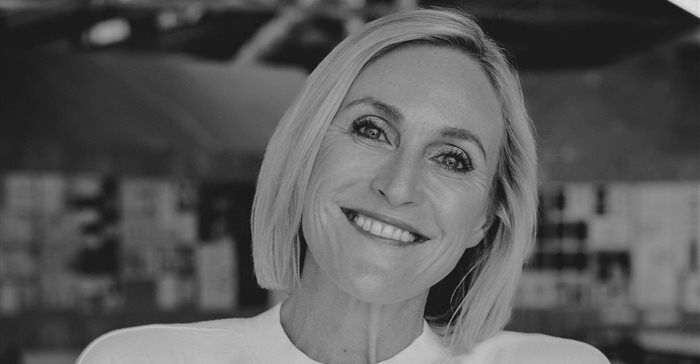Can Alternative Education Systems Save South Africa's Students In 2025?
Written by: BizCommunity Editor Save to Instapaper
Even those who secure university admission face challenges. In a 2023 study by South Africa’s Department of Higher Education Training, only 6% of South Africans aged 25–64 years had a diploma while 7.3% had a degree.
Factors like financial strain, outdated curricula, and a lack of support are strong contributors to high dropout rates. The situation is further complicated by global events, including the recent freeze on U.S. aid to Africa, which has disrupted partnerships and research funding.
In response, the conversation around employability is taking a turn. The 2024 Creative Study Edition #2 found that 60% of business leaders credit creativity, design, and marketing as their most important growth drivers.
Meanwhile, the Adobe State of Creativity Report 2024 shows that 83% of creative professionals are already integrating AI into their work.
Graduates without exposure to these tools risk falling behind. The rise of automation and digital transformation across industries also means that many traditional jobs are evolving or becoming obsolete, further underlining the need for adaptable skill sets.
Degree no longer sole path to success
The traditional university degree is no longer the sole path to success. Skills-based education, industry experience, and adaptability are becoming more valuable than credentials alone.
Employers are increasingly seeking candidates who can demonstrate problem-solving, creativity, and technological fluency over those with just theoretical knowledge.
As students weigh their options, institutions must rethink their role: should education be more practical, digitally focused, and aligned with evolving market needs?
Private colleges, bootcamps, and industry-led training programmes are filling gaps left by universities. These alternatives offer flexible, job-ready learning experiences that better prepare students for the workforce.
Bridging the gap between academic learning and employability
Then you have institutions that have positioned themselves as industry-focused educators, offering programmes that integrate real-world experience, internships, and mentorship to bridge the gap between academic learning and employability.
Similarly, coding bootcamps, digital marketing certifications, and online platforms provide accelerated routes to acquiring in-demand skills.
The push towards alternative education is also reflected in corporate upskilling initiatives. More companies are investing in in-house training, short courses, and professional development, recognising that the fast-changing nature of industries requires continuous learning.
This means that graduates who proactively look for skill development and industry exposure will have a competitive edge.
Higher education should be seen not as a privilege but as an investment in South Africa’s future. The real question isn’t just about access—it’s about access to the right kind of education.
This requires rethinking funding models, increasing collaboration between academia and industry, and ensuring that graduates are not just educated but employable. For us, the ultimate goal for our students is to secure employment within six months of graduation if not earlier.
The first months of 2025 have flown by, and the rest of the year will likely follow suit. As time races forward, the choice to redefine education must align with what we want for our youth.
Are we equipping them with the skills they need for a changing world, and are we, as educators, truly securing their next steps by equipping them with future-fit skills and mindsets?
Get new press articles by email
We submit and automate press releases distribution for a range of clients. Our platform brings in automation to 5 social media platforms with engaging hashtags. Our new platform The Pulse, allows premium PR Agencies to have access to our newsletter subscribers.
Latest from
- 7 Business Trends Your SME Can Leverage In 2026
- Sadilar Amplifies Visibility And Impact During Conference Season
- Future-ready Logistics- 5 Shifts TO Watch In 2026 (SUB-saharan Africa)
- Dunlop Urges Motorists To Prioritise Tyre Safety On The Busy Joburg To Cape Town Festive Route
- Poverty Trends Report Shows National Progress But Flags Growing Challenges In Gauteng
- SDG Challenge SA 2025 Highlights The Power Of Youth Innovation In Shaping A Sustainable Future
- Experienced Industry Leader Pauli Van Dyk Named Dean Of AFDA’s Upcoming Hatfield Campus
- South Africans Keep Tourism Alive As Homegrown Travel And Local Spending Rise
- Pretoria Student Wins Global Excel Esports Competition
- AfDB Steps Up Support For Somalia With $76m Investment In Roads And Regional Integration
- Corporate Law Experts Warn Directors Of Serious Consequences For Improper Transaction Approval
- New 3% Inflation Target Begins To Shift Expectations In South African Economy
- Retail As A Development Catalyst Drives New Africa Developments’ Inclusive Growth Strategy
- Collaborative SEF Model Shows How Civil Society And State Can Rebuild Economic Trust
- Shumani Accelerates Industrial Growth With Bheka Forklifts And New Equipment Plans For 2026
The Pulse Latest Articles
- Education Is The Frontline Of Inequality, Business Must Show Up (December 11, 2025)
- When The Purple Profile Pictures Fade, The Real Work Begins (December 11, 2025)
- Dear Santa, Please Skip The Socks This Year (December 10, 2025)
- Brandtech+ Has 100 Global Creative Roles For South African Talent (December 9, 2025)
- The Woman Behind Bertie: Michelle’s Journey To Cape Town’s Beloved Mobile Café (December 9, 2025)
